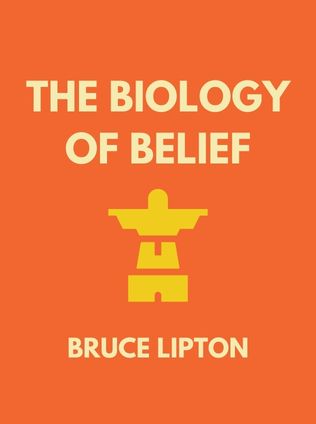
The Biology of Belief
Unleashing The Power Of Consciousness, Matter And Miracles
By Bruce Lipton
Published 01/2005
About the Author
Bruce Lipton, Ph.D., is a renowned developmental biologist who has made significant contributions to the field of epigenetics, the study of how behavior and environment can influence gene expression. Born in 1944, Lipton earned his Ph.D. from the University of Virginia and later joined the faculty at the University of Wisconsin School of Medicine. His groundbreaking research at Stanford University Medical Center on the behavior of cells led him to challenge the conventional wisdom that genes alone dictate our fate. Instead, he proposed that our beliefs and perceptions have a profound impact on our biological processes. Lipton is also the author of several books, including The Honeymoon Effect and Spontaneous Evolution, which explore the connection between consciousness, health, and human potential.
Main Idea
The central thesis of The Biology of Belief is that our thoughts, beliefs, and perceptions have a powerful impact on our health and genetic expression. Bruce Lipton argues that we are not simply at the mercy of our genetic makeup; rather, we can influence our biology through our mindset and interactions with the environment. This concept, rooted in the emerging science of epigenetics, suggests that by changing our perceptions and beliefs, we can take control of our health, well-being, and ultimately, our destiny.
Table of Contents
- Scientific Paradigms as Dogma
- Understanding Genetics: Darwin vs. Lamarck
- Epigenetics and Environmental Influence
- The Power of Belief and Thought
- Stress, Fear, and the Cellular Environment
- The Placebo Effect
- Energy and Its Role in Health
- Reprogramming the Subconscious Mind
- Collective Healing and Future Evolution
Scientific Paradigms as Dogma
Lipton begins by challenging the traditional view of genetics, which has long held that our genes are the primary determinants of our fate. He argues that this view, while historically significant, is now outdated and dangerously limiting. According to Lipton, the scientific community has clung to this paradigm for too long, often resisting new ideas that could revolutionize our understanding of biology and health.
Lipton likens the adherence to genetic determinism to a form of dogma, where the entrenched beliefs of the scientific community hinder progress and innovation. He asserts that this dogmatic approach has stifled the exploration of more holistic perspectives that consider the role of the environment, behavior, and, crucially, our thoughts and beliefs in shaping our genetic expression. The emergence of epigenetics—a field that studies how environmental factors influence gene activity—offers a powerful counterpoint to the deterministic view, opening up new possibilities for understanding human potential.
"The moment you change your perception is the moment you rewrite the chemistry of your body." – Bruce Lipton
Lipton emphasizes that by shifting our perception from seeing ourselves as victims of our genetics to recognizing our ability to influence our biology, we can begin to take proactive steps toward improving our health and well-being. This shift in understanding requires us to move beyond the constraints of traditional scientific paradigms and embrace a more integrative approach to health that considers the mind-body connection.
Understanding Genetics: Darwin vs. Lamarck
In exploring the history of genetic theory, Lipton contrasts the ideas of Charles Darwin and Jean-Baptiste Lamarck, two seminal figures in the field of evolutionary biology. While Darwin's theory of natural selection has dominated scientific thought for over a century, Lipton argues that Lamarck's ideas about the influence of the environment on genetic traits were unjustly dismissed and are now being vindicated by modern research in epigenetics.
Darwin's theory, which emphasizes competition, survival of the fittest, and the heritability of traits, has shaped the Western scientific worldview and influenced many aspects of society, from economics to social policies. According to this view, genetic traits are passed down unchanged from one generation to the next, and individuals with advantageous traits are more likely to survive and reproduce.
In contrast, Lamarck proposed that organisms could acquire traits during their lifetime in response to environmental challenges and pass these traits on to their offspring. This idea, though largely rejected in favor of Darwinism, has gained new relevance with the advent of epigenetics, which shows that environmental factors can indeed alter gene expression and that these changes can be inherited.
Sign up for FREE and get access to 1,400+ books summaries.
You May Also Like
The Subtle Art of Not Giving a F*ck
A Counterintuitive Approach to Living a Good Life
By Mark MansonRich Dad Poor Dad
What the Rich Teach Their Kids About Money - That the Poor and Middle Class Do Not!
By Robert T. KiyosakiHow To Win Friends and Influence People
The All-Time Classic Manual Of People Skills
By Dale Carnegie



















